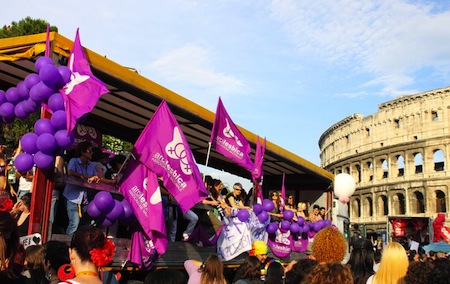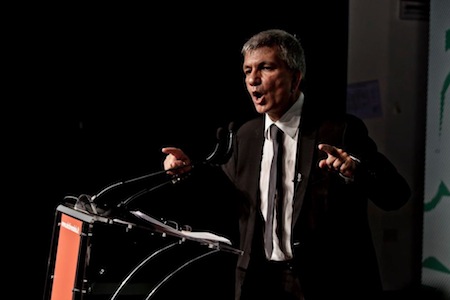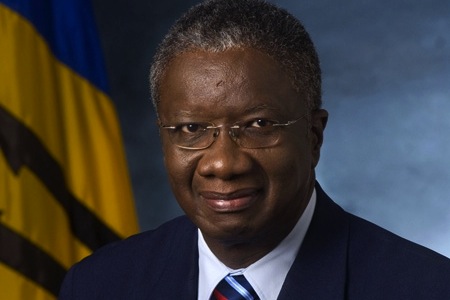
Ismaïl Omar Guelleh, the president of Djibouti in the Horn of Africa, has served as the tiny port-state’s president since 1999, the successor of his uncle, Hassan Gouled Aptidon, who was Djibouti’s president from independence in 1977.
Guelleh himself won reelection with over 80% of the vote in 2011 — an election that the main opposition figures boycotted. Furthermore, all 65 seats in Djibouti’s parliament are currently held by Guelleh’s Union for a Presidential Majority, a coalition of five parties dominated by the People’s Rally for Progress (RPP, Rassemblement populaire pour le Progrès or التجمع الشعبي من أجل التقدم), which itself has dominated Djiboutian politics since 1979 and was the only legally permitted party in Djibouti from 1981 to 1992.
So you should take Friday’s scheduled parliamentary elections with a grain of salt. Djibouti has neither any real experience with sophisticated electoral politics nor does it have any experience with peaceful transfers of leadership.
The opposition is essentially running on a platform of ‘we’re not the government.’ Hastily unified as the Union for National Salvation (USN) coalition, its leader Daher Ahmed Farah even returned from exile in Belgium where he’d spent the past nine years.
But due to a change in election law, Friday’s election will be the most open in the country’s history — proportional representation means that the opposition should win seats for the first time in Djiboutian history, as 20% of the seats are being awarded proportionally. The rest of the seats will, as in previous elections, be awarded by plurality in single-member districts, so it’s pretty clear that Guelleh’s allies will retain power after the election.
In a 65-member parliament, that means 13 seats are up for grabs.
In the closest election in Djibouti’s history in 2003, the government won 62.7% to 37.3% for the opposition. If the USN manages that result, rounding up, that means that maybe five seats will go to the USN, with the remaining 60, I am fairly confident, remaining in government hands. So it’s a move toward openness, perhaps, but it’s certainly not a showcase of, let’s say, Jacksonian democracy.
But as Amin Rosen writes in a superb summary of Djibouti’s current geopolitical role in The Atlantic, the elections are of vital interest to American and French military interests, and given that a considerable share of Djibouti’s GDP comes from lease income from the U.S. and French militaries, neither the current government and the opposition are unlikely to interfere with those operations. The former French colony of French Somaliland, Djibouti remains the largest French military presence outside of France. In 2001, the government leased a former French base, Camp Lemonnier, to the U.S. military, which is vital not only to the U.S. efforts against Islamic terrorist elements in Yemen and Somalia, but also somewhat of a hub for the entire region that includes the horn of Africa and eastern Africa. It’s been an instrumental base for the fight against Somali pirates, for example.
So in many ways, Djibouti is a kind of microsized military-colonial complex state, like Kuwait since the early 1990s, Bahrain increasingly since 2001, or like Panamá throughout much of the 20th century, that’s incredibly vital for U.S. interests in the Middle East and beyond.
It’s a vital country for Ethiopia as well. Even before the 1998 war with Eritrea that left Ethiopian-Eritrean relations hostile, Ethiopian business interests increasingly favored the lower-cost port of Djibouti for the most efficient access to the Gulf of Aden and global shipping channels, and even preferred the refineries in Djibouti to those in Eritrea. Following the 1998 war, Djibouti is now Ethiopia’s sole link to the coast.
So Djibouti matters, as Rosen rightly notes:
Djibouti’s importance to the west’s security interests is difficult to overstate. From its perch at the mouth of the Red Sea, it is possible to monitor traffic through the Gulf of Aden, and every vessel traveling between the Indian Ocean and the Suez Canal must pass within a few miles of the country’s coastline. It borders Somalia, home to the Al Shabaab terrorist organization, and the staging area for pirate attacks in the Indian Ocean.
The country has a population of just 775,000 people, two-thirds of which live in the main port of Djibouti City, and its economy is growing thanks to the rent-seeking gains from its role as a shipping hub for land-locked Ethiopia and as a hub for global security interests in the region. But despite a GDP per capita of around $2,600 — akin to Sudan or Ghana, and much wealthier on a per capita basis than Somalia, Ethiopia or Eritrea — Djibouti has high unemployment and high poverty.
All the while, per Transparency International’s rankings for corruption, Djibouti manages to edge out some of its neighbors, but still ranks 94th, just alongside Greece, as a fairly corrupt country.
The economic inequality explains why Djibouti saw a sustained round of protests in 2011 — nothing like those that rocked Tunisia, Egypt and Yemen, or even Bahrain, but enough for Guelleh to take note.
Friday’s elections in Djibouti, I’ll venture a guess, won’t transform power to the Djiboutian opposition. But they may well mark a gradual opening of the port-state’s political space that could well allow for vibrant democracy in the years to come.
![]()



